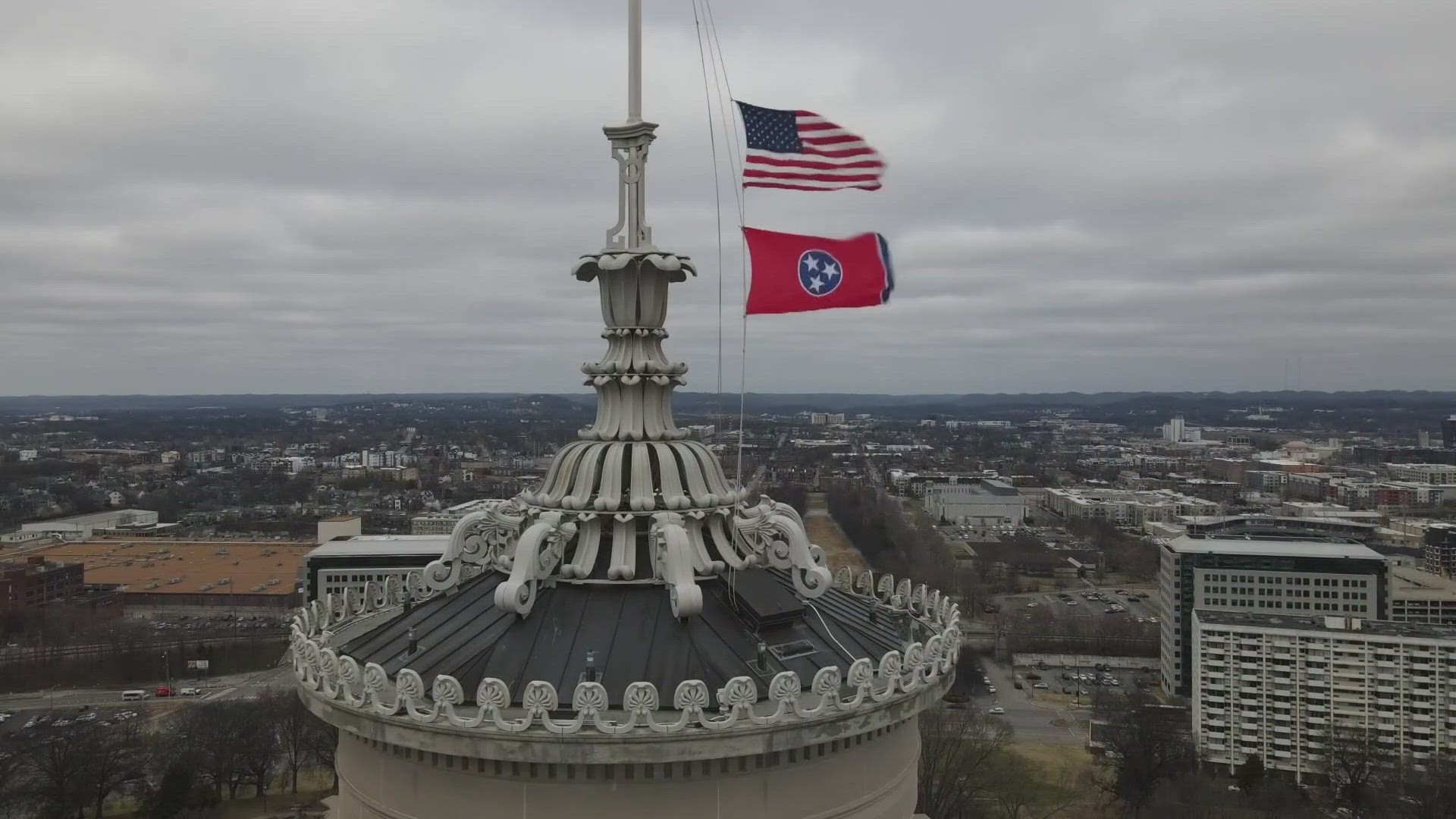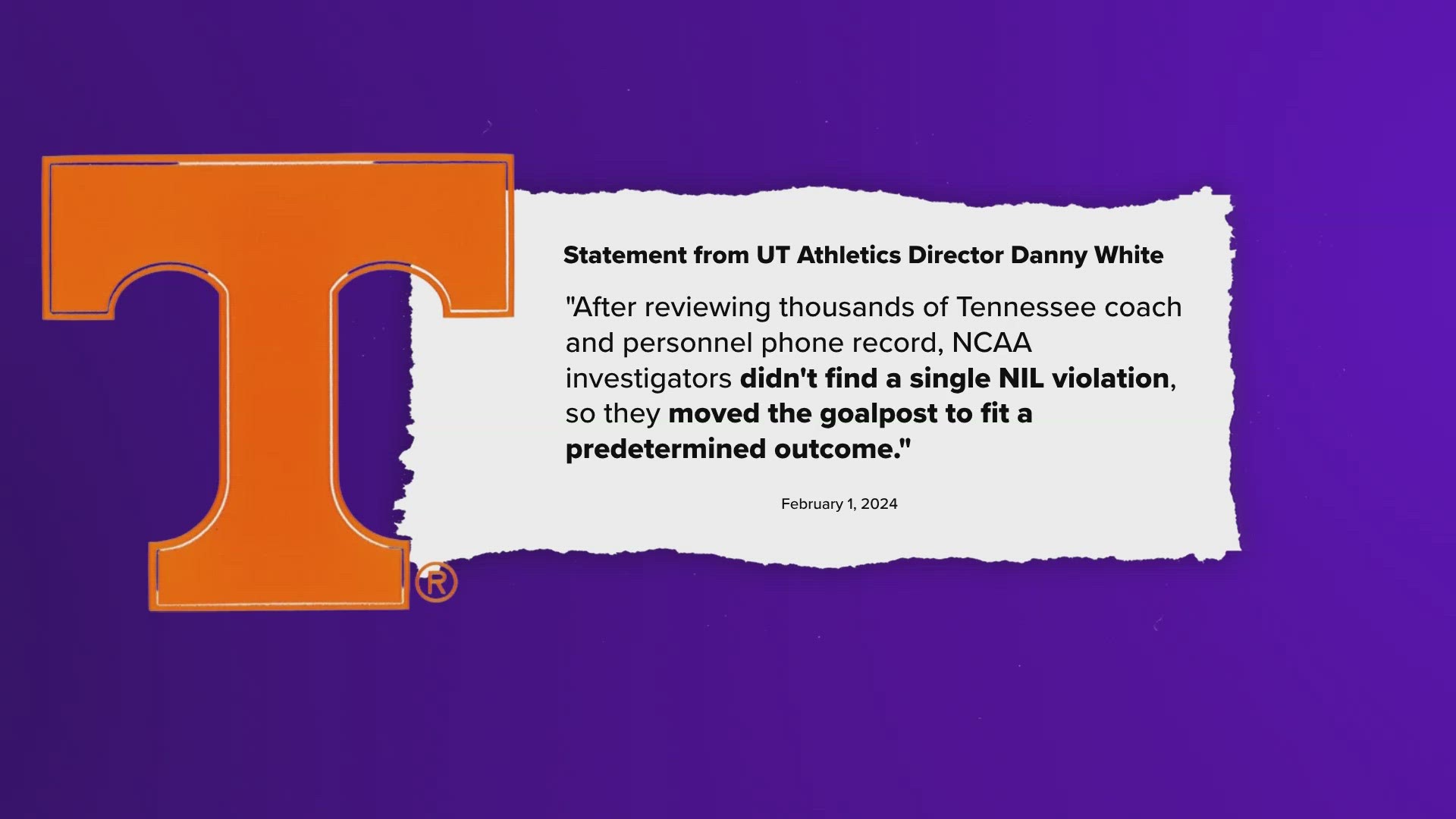KNOXVILLE, Tenn. — A federal judge declined Tuesday to immediately stop the NCAA from enforcing a ban against student-athletes from discussing potential NIL benefits with schools and collectives.
U.S. District Court Judge Clifton Corker's decision comes as Tennessee and Virginia pressed for a quick decision on what's called a temporary restraining order, or TRO, ahead of the Feb. 7 national signing deadline for student-athletes.
National Signing Day for Division I and II Football (Regular Period) is on Feb. 7. The signing period remains open for Division I until April 1, 2024 and for Division II until August 1, 2024.
Corker said in his order Tuesday afternoon he wasn't convinced of the absolute urgency of imposing a TRO right now. A TRO is an extraordinary remedy, Corker noted, and this case isn't ripe for such a step yet.
"The inability of schools and collectives to facilitate NIL discussion and provide services to assist student-athletes in navigating the NIL market also does not constitute irreparable harm," Corker wrote. "Although such discussions and services would likely prove beneficial, (the states) have failed to show how the absence of those discussions and services would cause actual and imminent harm."
The judge, however, hinted that the states appeared to have a winning hand. Federal law prohibits monopolistic business practices, and the states argue the Sherman Act applies against the NCAA.
"Considering the evidence currently before the court, plaintiffs are likely to succeed on the merits of their claim under the Sherman Act," he wrote.
The states and the National Collegiate Athletic Association engaged in a flurry of motions and filings starting Friday in seeking the judge's ruling.
Regardless of the decision, the states' lawsuit against the Indiana-based NCAA will carry on. A hearing has been previously set for Tuesday morning in federal court in Greeneville.
The states seek further injunctive relief, including what's called a permanent injunction, to stop the NCAA. Such a decision will come only after further litigation and argument in court, a process that could take weeks or months.
Last week, Tennessee and Virginia filed suit against the NCAA in federal court in Knoxville. They argue the association has used arbitrary, retroactive and vague enforcement of NIL rules that violate federal and state law including anti-trust laws.
It's a fight that's been brewing since the emergence of NIL as a tool for student-athletes to get compensation for their accomplishments on the playing field.


